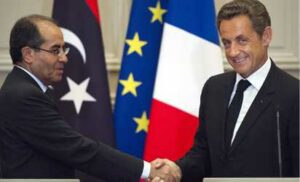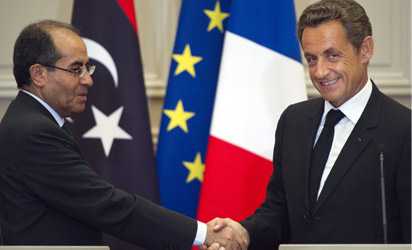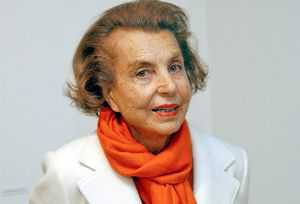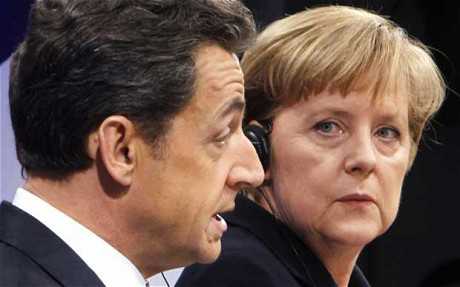Thomas Seibert
Last Updated: Dec 3, 2010
ISTANBUL // One evening last year, Nicolas Sarkozy, the French president, was circling over Paris in his plane, when his advisers suddenly told pilots to change course.
They wanted to prevent the president, an outspoken opponent of Turkish membership to the European Union, from laying eyes on the Eiffel Tower. At the time, the tower was lit up in the Turkish national colours in honour of a visit of Recep Tayyip Erdogan, the Turkish prime minister.
The incident, reported by diplomats of the US Embassy in Paris in a memo in December last year and published this week by WikiLeaks, offers a glimpse of how adamant Mr Sarkozy’s opposition to Turkey’s EU bid is.
A number of WikiLeaks cables spanning several years and written by US diplomats in Paris and Ankara suggest that it will be very hard, if not impossible, for Turkey to overcome European, and especially French, resistance to its wish to join the EU.
“Whatever the ramifications of keeping Turkey out, he opposes bringing 70 million Muslims into Europe,” one US cable from 2007 said about Mr Sarkozy.
In a meeting with Philip Gordon, the US assistant secretary of state for European and Eurasian affairs, in September last year, French government officials said they hoped that Turkey itself would give up its EU accession talks that have dragged on since 2005 without much progress.
Jean-David Levitte, a French presidential adviser, told Mr Gordon that “Paris hopes that it will be the Turks themselves who realise that their role is best played as a bridge between the two worlds of Europe and Asia, rather than anchored in Europe itself”.
Turkey, a Muslim-majority country bordering Iran, Iraq and Syria, has repeatedly rejected calls from France and Germany to accept a “privileged partnership” with the EU instead of full membership.
Ankara says it is determined to stick to the negotiation process despite resistance by France and other EU countries. All 27 EU members have to accept the application of a new member state.
Although it is the ultimate aim of Turkey’s EU talks for the country to fulfil all accession criteria by completely implementing EU law, known as the acquis communautaire, this possibility is a horror scenario for the French, according to the US cables. Mr Levitte, the French advisor, “predicted that a worse case scenario would be if Turkey finally manages to complete the acquis and end negotiations and a public referendum is held in France which is finally opposed to their membership”.
Memos written by US embassy officials in Ankara express Turkish frustration with Mr Sarkozy and with Angela Merkel, the German chancellor, who also favours a “privileged partnership”.
There was “a sense in Turkey of distance from and lack of sympathy for Europe”, US diplomats in Ankara wrote in January this year. “Both popular and elite Turkish opinion has recently grown much more pessimistic about eventual EU membership.”
The memos also record Israeli concerns that the rejection Turkey has encountered in the EU is pushing the country towards the Muslim world, with Israel having to pay the price in seeing its ties to its long-standing partner deteriorate.
Israeli officials told their French counterparts in October last year “that if Europe had more warmly embraced Turkey, then the Turks would not be taking steps to earn approval in the Arab and Muslim world at the expense of Israel”. The French “begged to differ”.
But there is not only scepticism in Europe towards Turkey’s EU bid, but also within the ruling party in Ankara itself, US diplomats wrote. Some members of the more Islamist wing in Mr Erdogan’s Justice and Development Party, or AKP, had their doubts about the EU project, they wrote in 2004.
While some members of the religious AKP wing “assert that it is only through Turkish membership and spread of Turkish values that the world can avoid the clash of civilisations they allege the West is fomenting, others express concern that harmonisation and membership will water down Islam and associated traditions in Turkey”, the cable said. Next page
via Cables show Sarkozy does not want Turkey in EU.
 Paris – Libya’s rebels in April promised France 35 per cent of the country’s crude oil in exchange for supporting the National Transitional Council in its fight against Muammar Gaddafi, a French newspaper reported on Thursday.
Paris – Libya’s rebels in April promised France 35 per cent of the country’s crude oil in exchange for supporting the National Transitional Council in its fight against Muammar Gaddafi, a French newspaper reported on Thursday.





